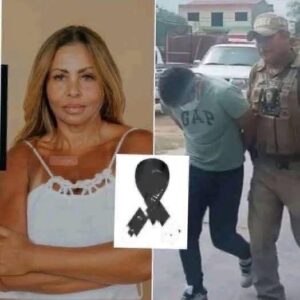It happened in a small-town diner, where a group of veterans—tough-looking bikers in leather jackets—had gathered after a long ride. They filled a corner booth with their laughter until a boy, no older than eight, walked straight up to their table. His dinosaur-print shirt made him look even smaller as he spoke words that stopped every conversation around them: “Can you help me with my stepdad?” The boy, Tyler, set seven crumpled dollar bills on the table. His little hands trembled, but his eyes were steady. Big Mike, the club’s president and a grandfather himself, crouched down to his level.
“Why do you need help, buddy?” he asked gently. Tyler tugged down his collar, revealing faint purple marks around his neck. “He said if I tell anyone, he’ll hurt Mom worse than he hurts me. But you’re bikers. You’re strong. You can protect her.” In that moment, the men noticed the rest—the brace on Tyler’s wrist, the bruise half-hidden on his jaw. Just then, his mother came back from the restroom. She froze when she saw her son at their table. Her wrist makeup was smudged, just enough to reveal similar marks. Mike spoke softly: “Ma’am, please sit with us. Dessert’s on us tonight.”
Her guard slipped, and tears filled her eyes. “You don’t understand,” she whispered. “It’s not safe.” Mike leaned closer. “Every man here served in combat. Protecting people from bullies is what we do. Now, is someone hurting you?” Her silent nod was all the answer they needed. When her husband stormed from across the diner, rage written all over his face, he found fifteen veterans rising as one. Mike’s voice was calm but unyielding: “This mother and child are under our protection now.


